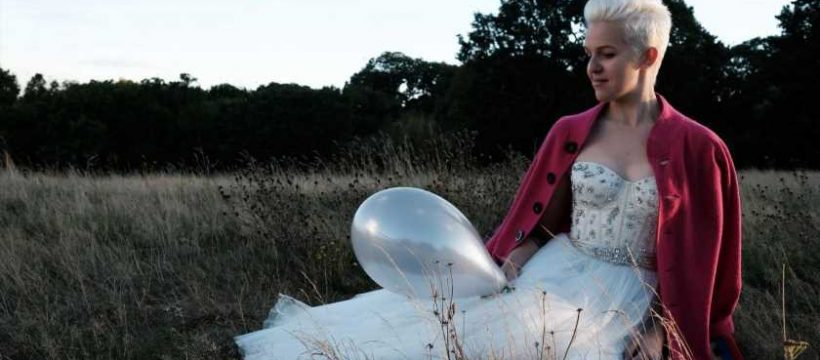Written by Ally Sinyard
What does queer mean? For writer Ally Sinyard, it means giving yourself the freedom to be whoever you want and the permission to grow and change…
I’ve never written about my sexuality before. It’s taken 31 years to figure it out and, honestly, even then I know it will continue to change. That’s why I’m so relieved to finally find a word that encompasses everything I think and feel: queer.
It feels like both a big deal and not. By that I mean, it feels like a big deal to me, because I finally understand something about my identity that I’ve struggled to grasp forever, but I don’t expect it to be a big deal to those close to me.
I don’t mean it in a bad way. Over the years, I’ve vaguely told close friends and my brother that I identify as both bisexual and pansexual, and I’m so lucky to be surrounded by people who have all replied with something like, “And are you OK about it? Great, now where are we going for dinner?”
I’m also lucky to have a parent who I know will love me whatever colour of the rainbow I am, and that I could talk to him about it if I needed to.
What I love about identifying as queer is the freedom and flexibility it gives me (steady on). I’ve forever failed to squeeze myself into one of the sexuality boxes on the tick sheet. At one point, I decided to reject all labels altogether; but with queer, I’ve finally found a word that fits around me instead.
The word “queer” has varying definitions, from being strange or odd, to being solely attracted to one’s own gender, to the broader umbrella term that I now choose to identify with. In this sense, “queer” to me simply means being anything other than straight or cisgender. I appreciate this makes it a bit of a catch-all, an “other,” but I love the vastness, the fluidity and the inclusivity of “queer.”
Also, having been labelled “weird” as a kid, I relish the idea of being able to reclaim its synonym.
Discovering and finally owning being queer came about, you guessed it, during lockdown. There wasn’t an earth-shattering, formative moment. I think I first came across the term when Jameela Jamil came out as queer on Twitter, following a lot of furore about her being named judge for a HBO vogueing TV series and accused of appropriating ballroom culture. It sent me down a rabbit hole of what being queer meant, and I identified with the way it wasn’t fixed.
To clarify, because of course we want the juicy details too, I’m mostly attracted to masculine-presenting folks, be that a cis man or otherwise. I’ve dated women and am open to relationships with all sexualities and genders, but if I had to say I had a “type,” it’s cisgender, queer men (i.e. cisgender but not het). The closest I probably had to any kind of “queer awakening” was watching the now-legendary Lip Sync Battle clip of Tom Holland performing Umbrella (you know the one).
Obviously I clocked this before lockdown, but it’s only now that I fully realise why I find it so powerful and magnetic. Hopefully Holland will forgive me for assuming he is cis het, but essentially here we have a straight white guy performing a Rihanna classic in a PVC maid’s outfit, and the internet crumbles and hits the RT button every time it lands on the timeline.
Why? I could write thousands of words on why but, in a nutshell, he’s respectfully and artfully paying tribute to the goddess Rihanna while blurring the socially constructed boundaries of gender and sexuality in front of a mainstream audience. AND he’s absolutely owning it, rather than doing it for laughs. It rattled people’s cages, made folks question what they were seeing and how they felt about it, and Holland could absolutely care less. And to quote Paris Hilton, that’s hot.
During lockdown, my housemate also got me into RuPaul’s Drag Race for the first time, and the more I’ve learned about drag and LGBTQ+ culture, the more I’ve been able to shake off all of these restrictive ideas I’ve had for so long about what gender and sexuality “should be.” It made me realise that I, personally, was always using signifiers as a way for others to identify me. If I’ve learned anything from this whole journey, it’s that signifiers and Pride is about owning it yourself, first.
Pride Month in both 2020 and 2021 have been periods of discovery, education and acceptance for me. Admittedly, before lockdown, I’d only been to one parade, and even then I honestly felt like an imposter. Now, I feel more part of the LGBTQ+ community, even though we’ve all been so far apart. I’m grateful to have found more inclusive dating apps like Feeld, where folks across the entire spectrum are free to express their true selves and find the kind of love and sex they want without any fear of judgement.
I know it’s cliché, but coming out of lockdown feels like something quite different now. I can’t wait to see what happens next. See you at the next Pride parade!
Images: Instagram, Greer McNally
Source: Read Full Article

